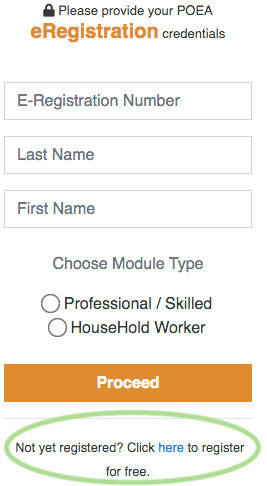Are you a Filipino asking yourself hmmm how to work in Japan? travelandjapan.com helps you find your way to the land of the rising sun in this guide. From learning the Japanese language to arriving in Japan I want to help you live your dream.
I understand that Filipino’s can make more money in Japan then they can in the Philippines but several don’t know the steps to take. I did the research so you don’t have to. So let’s get you to Japan!
Learn Japanese
There are several ways to learn Japanese. Books, online, school, tutor, and TESDA are a few.
- Books – I recommend the Japanese from Zero! book series. It’s easy to follow and each book has a YouTube video for each chapter. Read my full review here.
- Online – Italki is a great one-on-one language site that has Japanese instructors. I used online instruction along with books. Read my full review here.
- School – UNMEI Nihongo Center is popular and has won several awards for excellence.
- Tutor – Find a tutor in your area by searching online or putting an ad in the local paper.
- TESDA – Offers a free language class (Basic Japanese language and culture 150 hours) but priority goes to individuals who are Pre-selected or nearly hired By their potential employer.
TESDA sounds like that best option but you might want to think about this…If you fail the class you lose your job. Also, it’s only a basic class, and jobs that pay well in Japan require conversational Japanese (JLPT N3). Unless you are a computer programmer or an English teacher.
If you don’t have money for other options then take the TESDA free class without getting a job. You’ll need to wait longer for the class but you will learn basic Japanese and culture without any risk. You can also take the class multiple times. Sign up here for your free class.
I know some Filipinos who were hired only to find out they need to quickly learn Conversational Japanese or lose their job. This was after they spent a bunch of money moving and setting up their apartment in Japan.
Spend some time in the Philippines to learn the Japanese language then apply for a well-paying job in Japan. If you can already speak the language the employer will be impressed and probably want you to sign a contract as soon as possible.
Sign up for TESDA here.
Children
If you want your child to have a career in Japan then they should start Japanese language classes as young as possible. If they continue to learn a language until adulthood they will be fluent. They can attend college in Japan. If they qualify they can attend college for free with an international scholarship. This will allow them to have not just a job but a career in Japan.
Pre-employment orientation seminar
Before applying for a job in Japan you’ll want to sign up for the pre-employment orientation seminar. If you have already finished e-register just add your information and press proceed. If not click on the click here to register for free.
Pre-employment orientation seminar covers:
- Necessary information on overseas job application procedures
- Documentary requirements and cost involved
- Important information to safe guard against illegal recruitment
Sign up for a Pre-employment orientation seminar here.
Applying for the Job
Philippines Overseas Employment Administration (POEA) is the only place Filipinos can sign up for work overseas.
- e-register here by clicking on the register button. If you have already completed e-register then just sign in.
Then click I accept the terms of use and fill in your personal information, passport number, and expiration date.
To see a list of Jobs in Japan click here then select Japan and submit.
If your level of Japanese language is still low the company will require you to attend classes. This will extend your time in the Philippines significantly so if you want to leave for Japan as soon as possible take Japanese language classes before applying for a job. Even if you’re going to do a job that doesn’t require Japanese like computer programing or teach English it’s still best to know basic Japanese so you can communicate.
Pass Medical Exam and Japanese Language Test
After Japanese classes or if you already know Japanese you’ll be given a Japanese language exam. The test is not difficult and is not at the level most Japanese companies are looking for. So be prepared to study a lot more to improve your language skills once you arrive in Japan if you have only basic skills.
You’ll need to not only pass a Japanese language test but also a medical exam to qualify for a job. This is just a simple exam to see if you are fit enough to work.
If you fail the Japanese language test or the medical exam the company will release you from the contract. You will need to reapply once your language skills have improved or your health issues have been resolved.
I passed all test
Congratulations! You pass all your test and the company has accepted you to work in Japan.
The next steps are signing the contract and paying all fees.
Read your contract carefully to ensure you understand everything. The contract will list all fees you will pay, length of stay, your work, monthly deductions, and starting salary.
Sign the contract if you understand and agree with the terms. Ask questions if you don’t understand anything about the contract and don’t sign until you completely understand.
Wait on your visa
After you sign the contract the company will file the paperwork for your visa. Your Certificate of Eligibility (COE) will arrive in a few days and the company will contact you about your departure date and time.
Travel to Japan
Pack your bags because you’re going to Japan. The plane ticket is free!
When you land in Japan a company representative will meet you at the airport and take you to your hotel or apartment. Over the next few days, they will help you do several things that are covered in my moving to Japan article.
See my article about moving to Japan here.
Please leave a comment below about working and living in Japan.




very informative, thanks
Thank you, I’m glad you visited travelandjapan.com. Let me know if you have any questions. I’ll be happy to help.
Michael